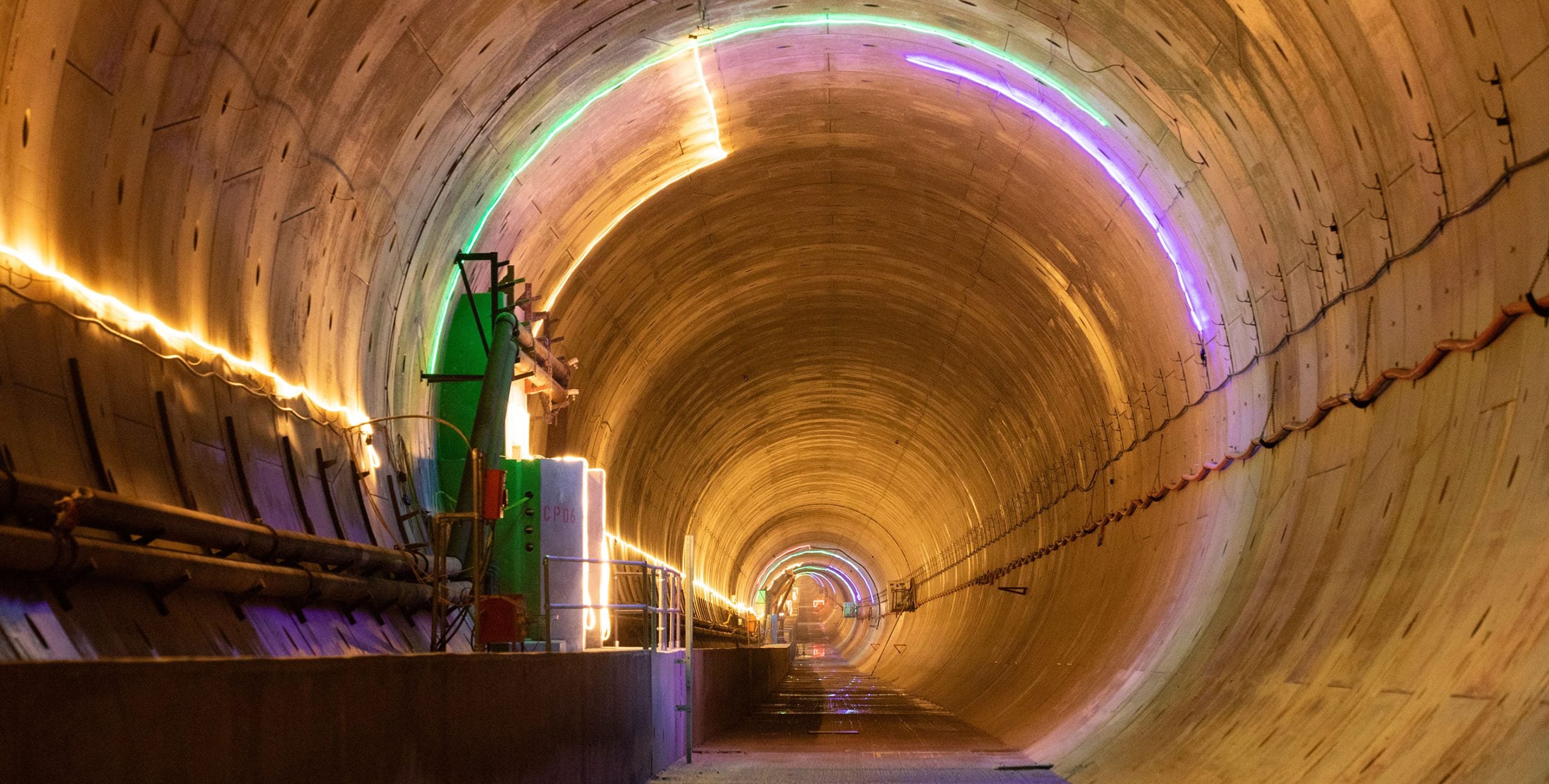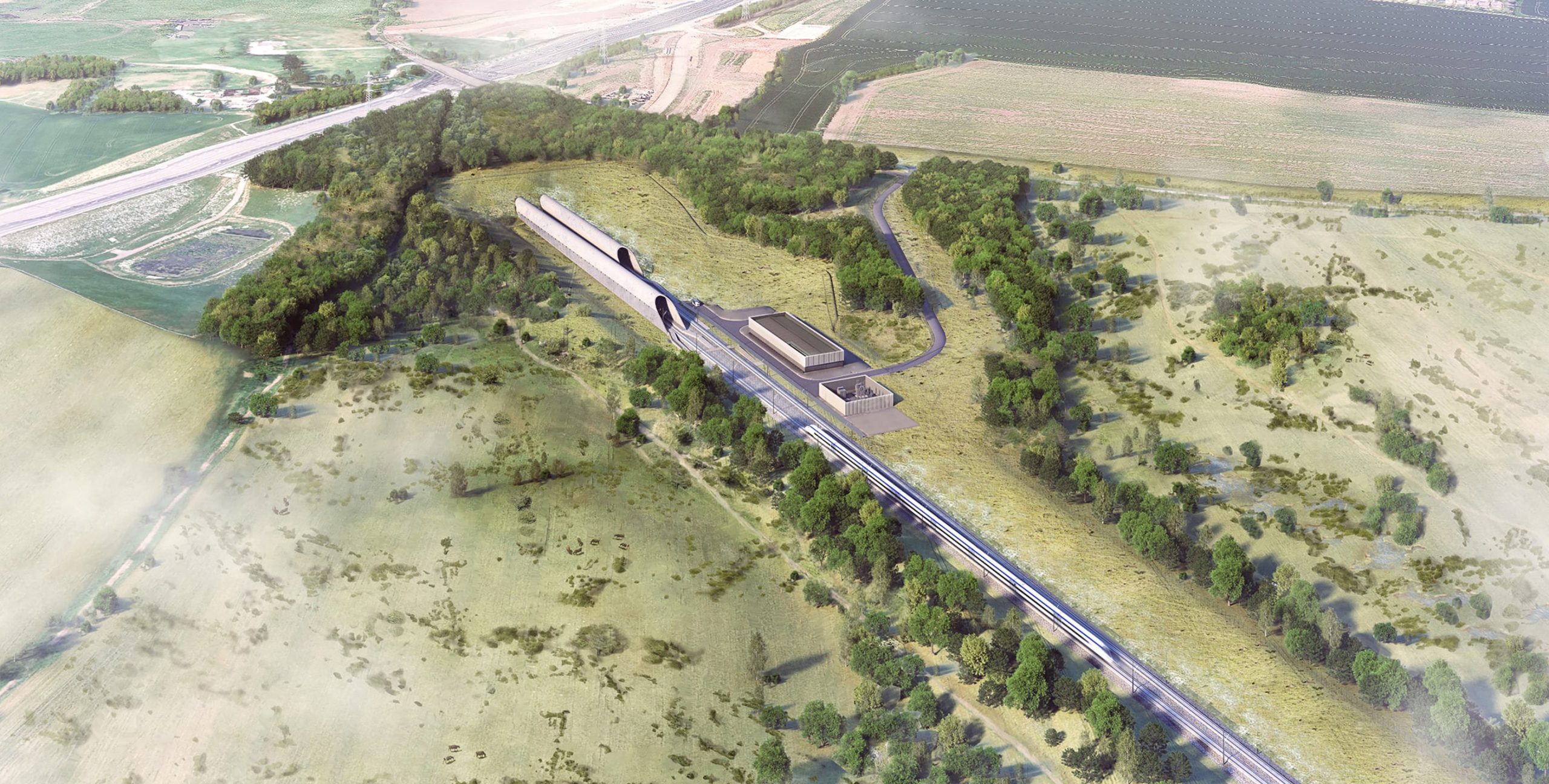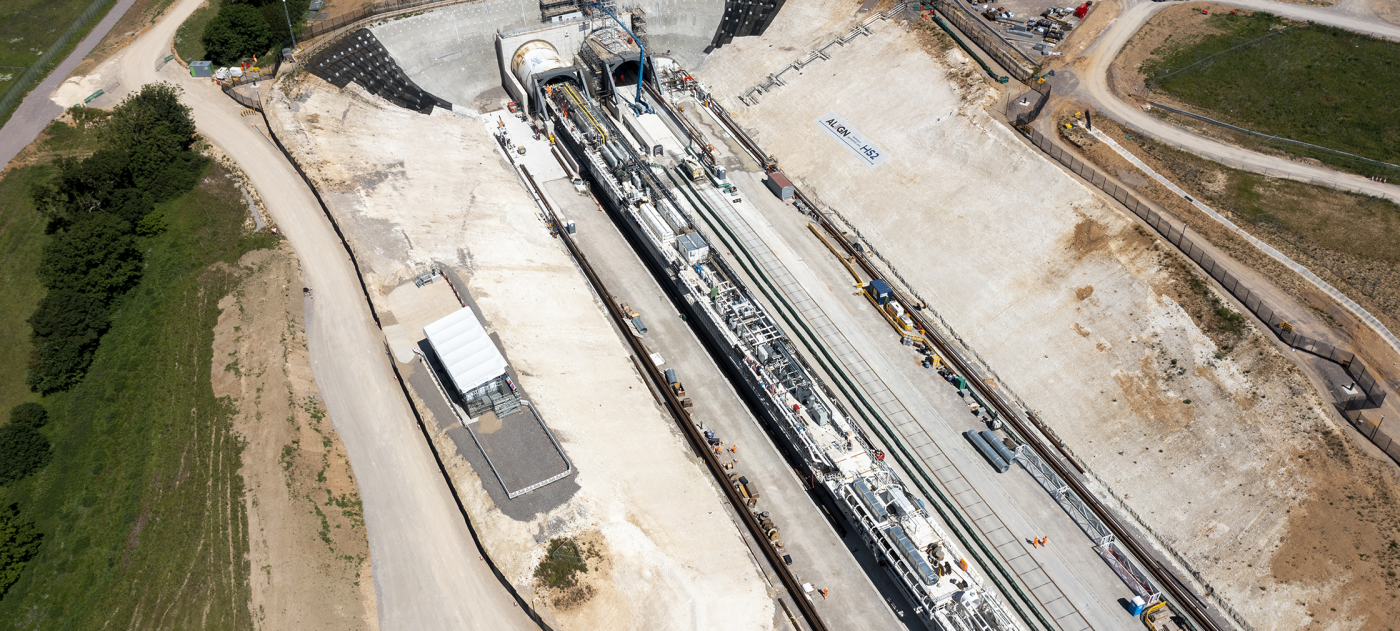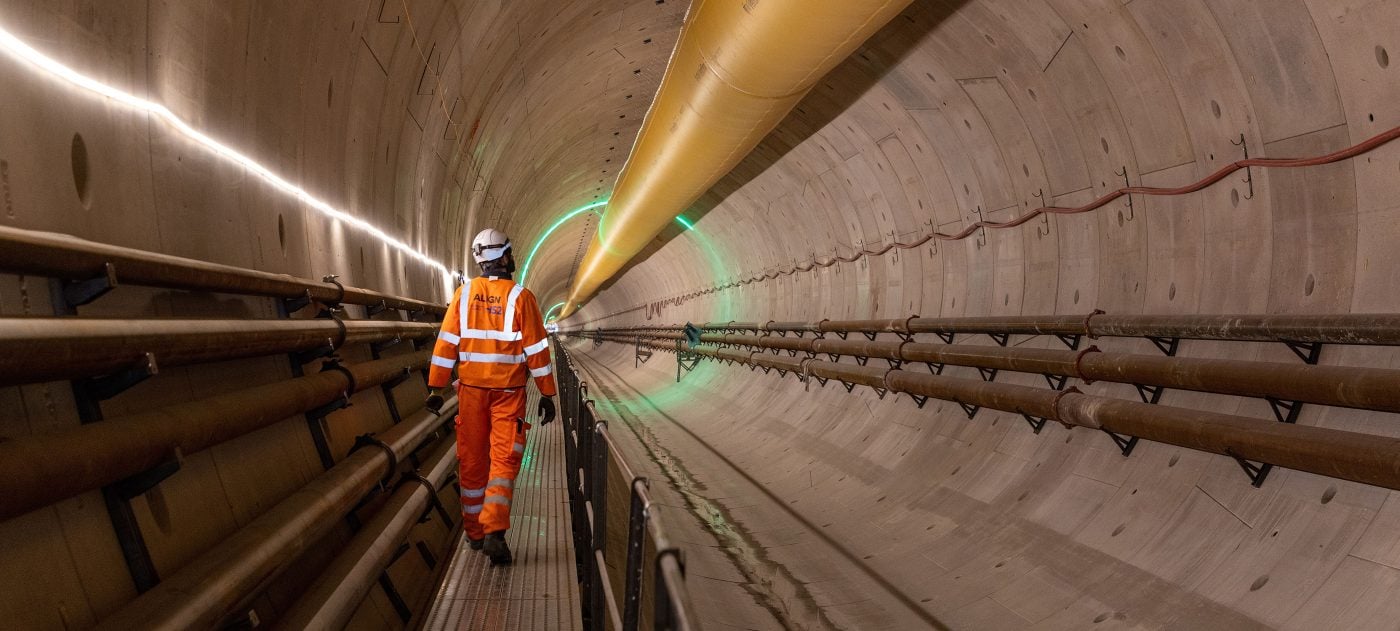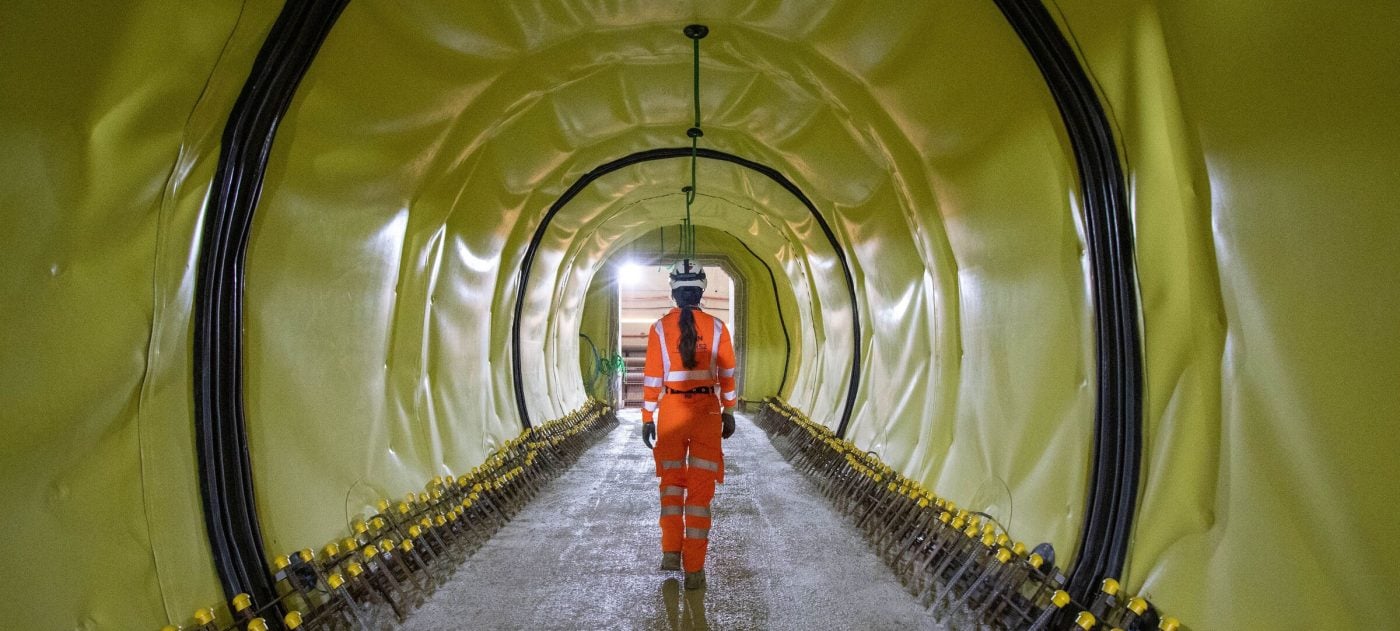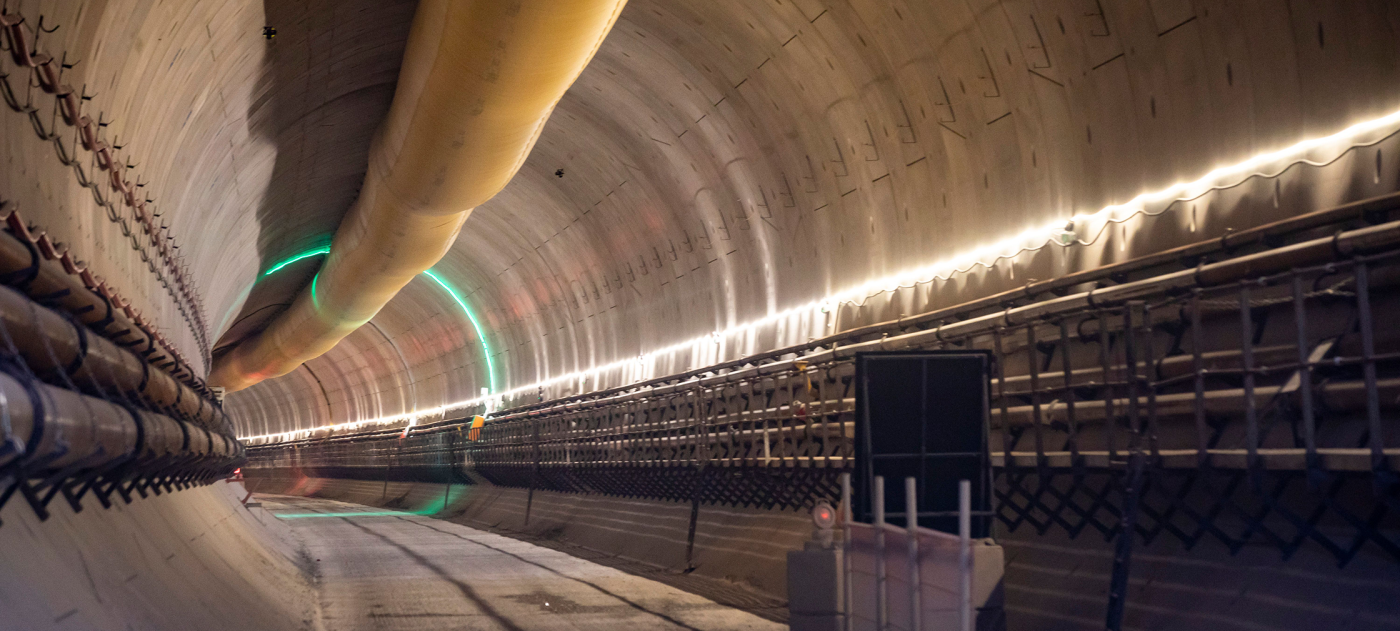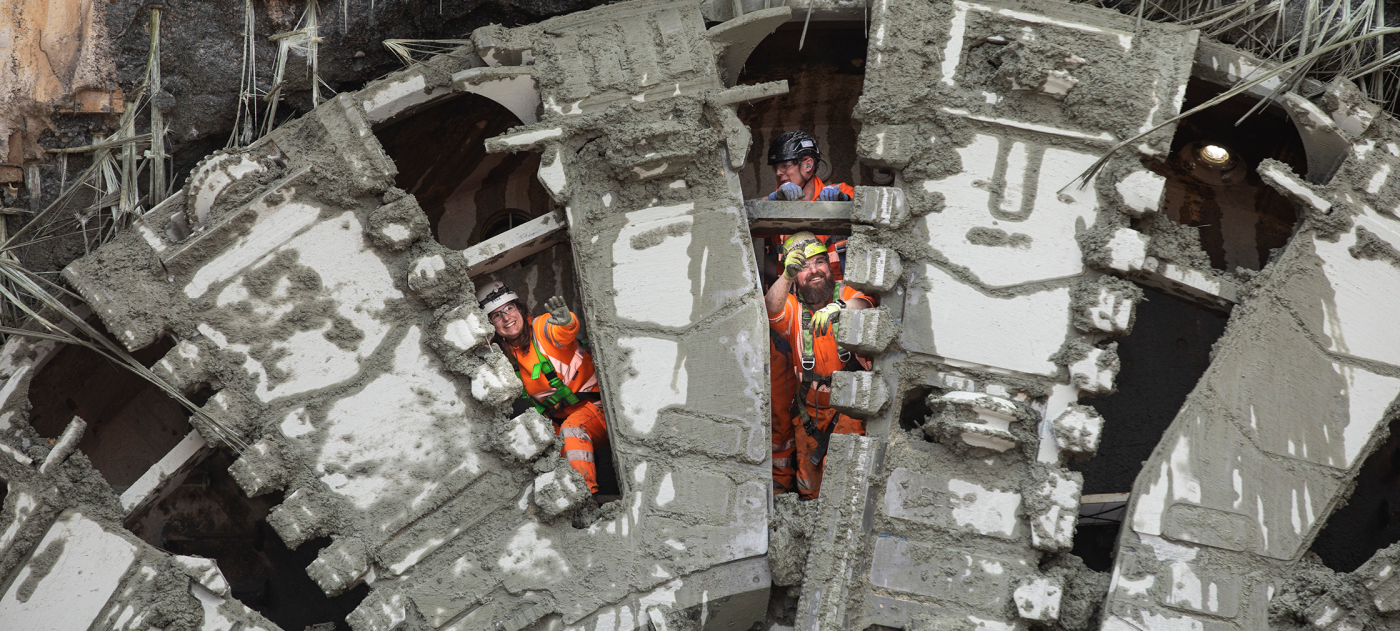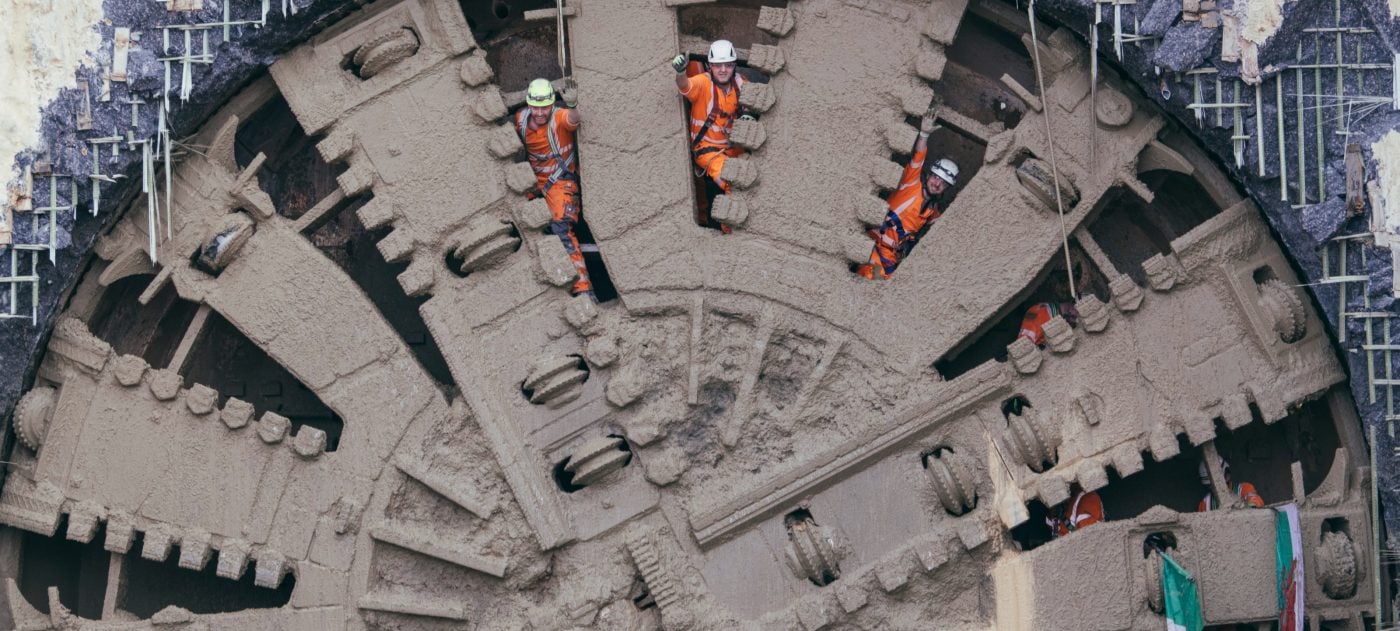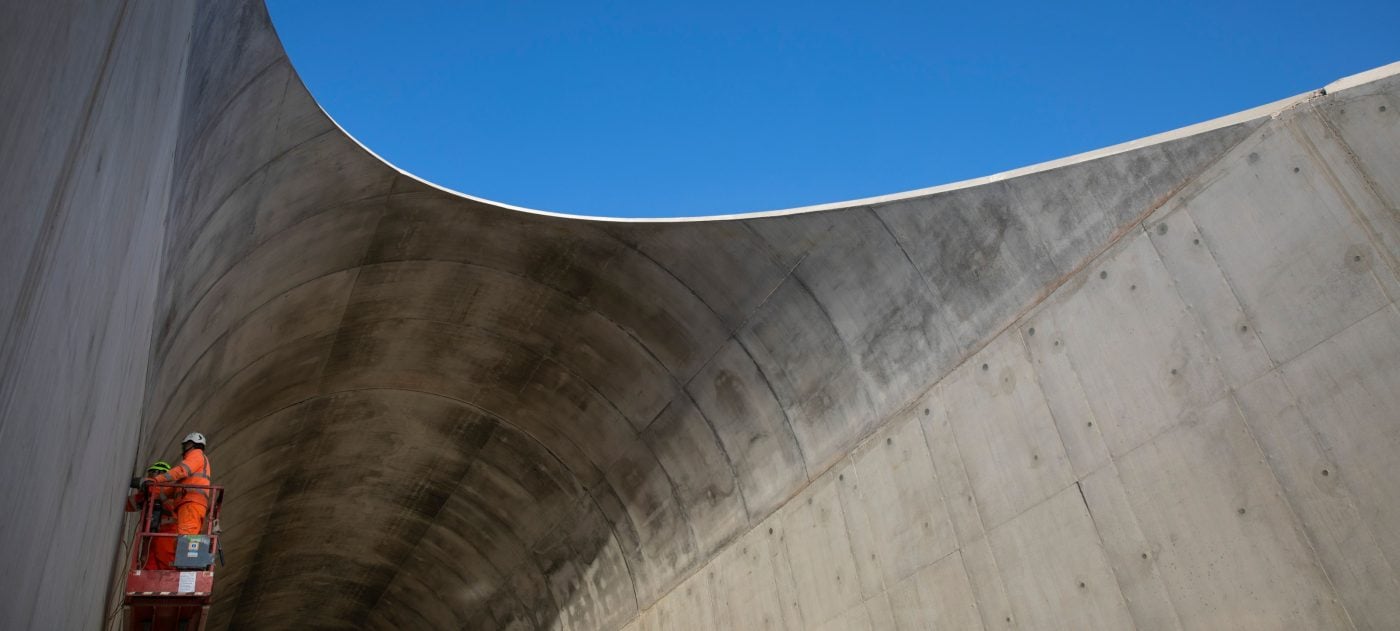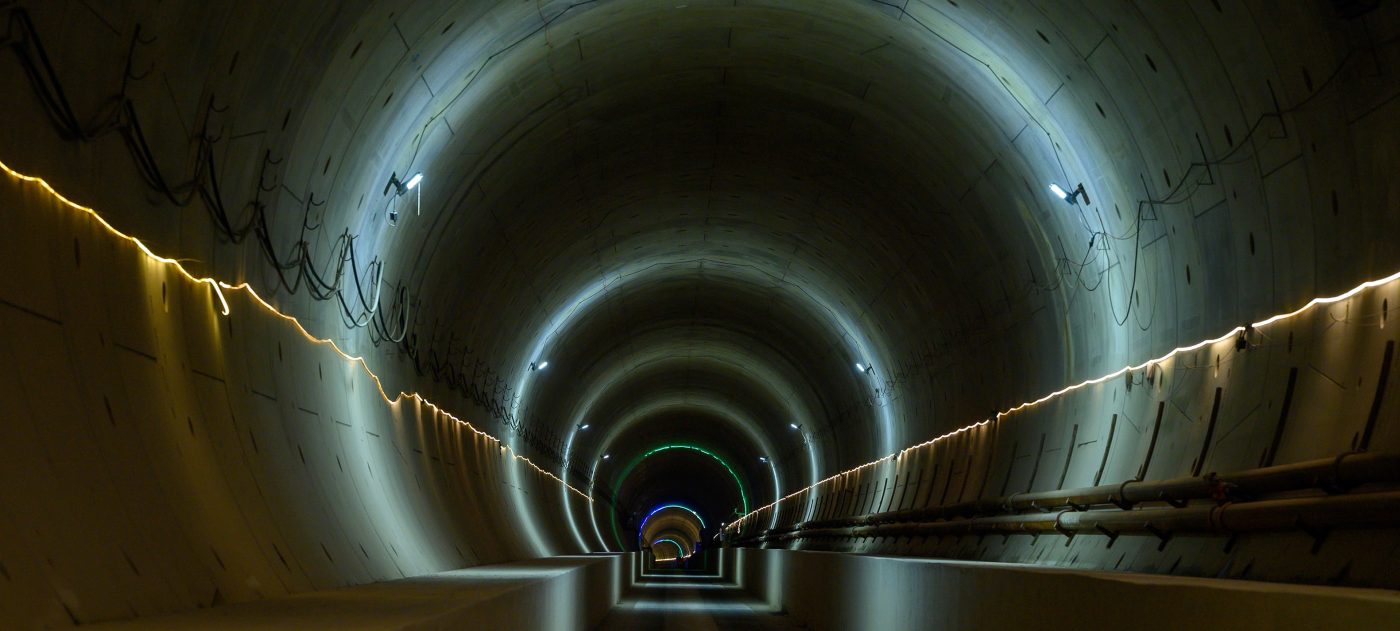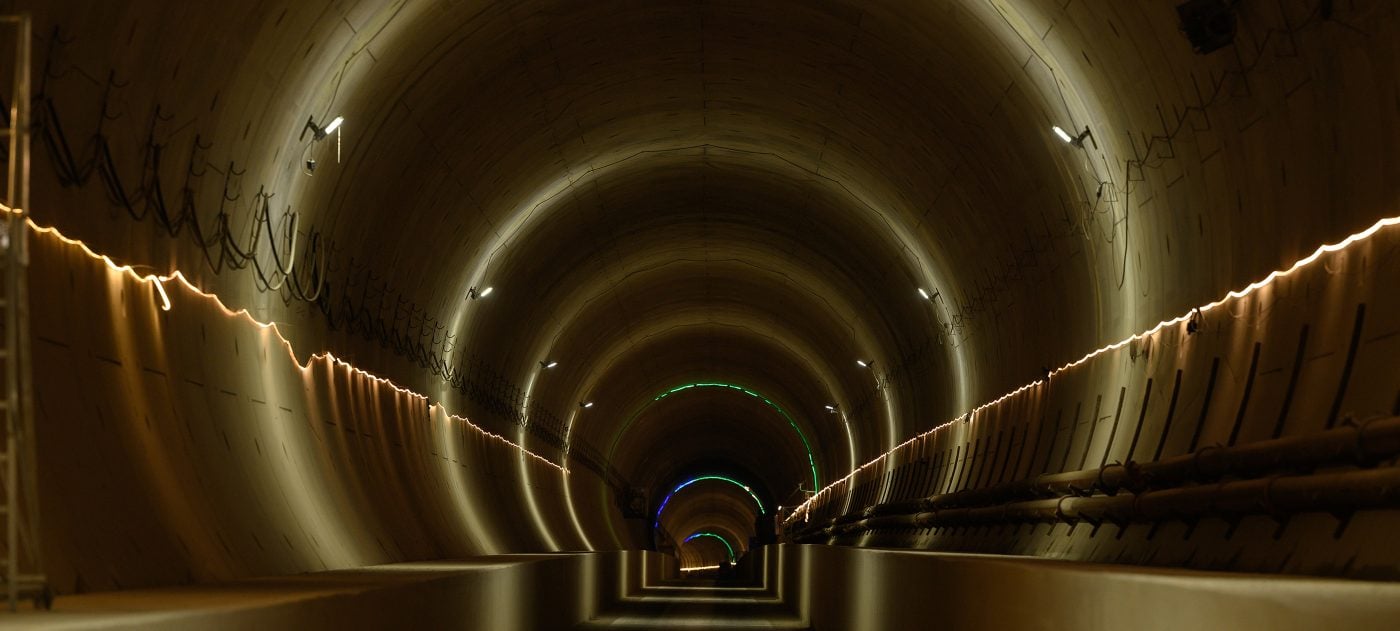
Chiltern tunnel
Tunnel construction
The 2,000-tonne TBMs were built by tunnelling specialists Herrenknecht. After being built they were, the TBMs were disassembled and transported to England. On arrival, they were reassembled near the entrance to the tunnels.
Designed specifically for the geology of the Chilterns, each machine was a self-contained underground factory. They bored the tunnel, lined it with concrete wall segments and grouted them into place.
The TBMs were kept running by a crew of 17 operatives working in shifts, supported by more than 100 people at the main compound.
Each of the separate northbound and southbound tunnels were built with 56,000 precision-engineered, fibre-reinforced concrete wall segments – all made at the south portal of the tunnel.
About 2.7 million cubic metres of material was removed during construction of the tunnels. This was used for landscaping around the south portal site.
Support infrastructure
Chiltern tunnel south portal
The southern portal is an innovative extension of the tunnel. It stops high-speed trains travelling at 2000mph from creating a ’sonic boom’.
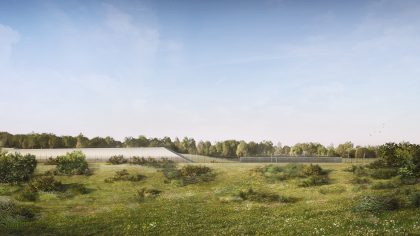
Chalfont St Peter headhouse
Set back from the road, the building is topped with a grey zinc roof. Its doors and vents are picked out in dark bronze for contrast.
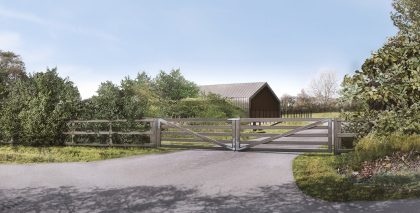
Chalfont St Giles headhouse
Set into a fold in the Chiltern hills, the headhouse takes its inspiration from the style of nearby barns and other agricultural buildings.
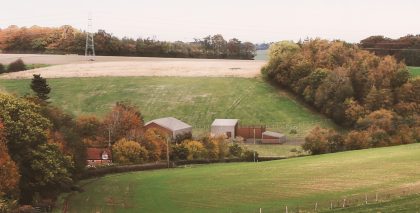
Amersham headhouse
Sitting just outside Amersham, the boundary wall will be made of flint, a stone long used in Chilterns architecture.
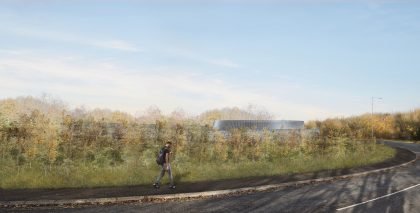
Little Missenden headhouse
Dark, neutral tones and a palette of zinc, brick and steel take cues from local farm and industrial buildings.
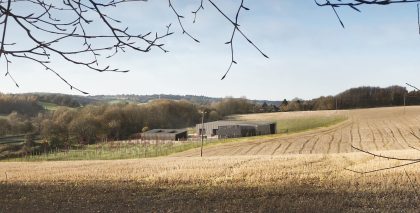
Chesham Road intervention shaft
The building’s colour and detailing blend into the landscape, using a simple palette inspired by local farm and industrial forms.
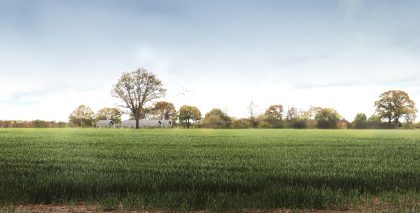
Chiltern tunnel north portal
A simple single-storey building clad in earth-toned zinc will house equipment, its green roof helping it blend into the landscape.
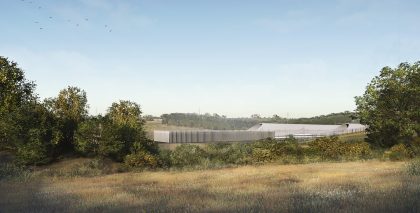
Email newsletters
Subscribe to our Project Update newsletter to receive the latest news and updates about HS2.
